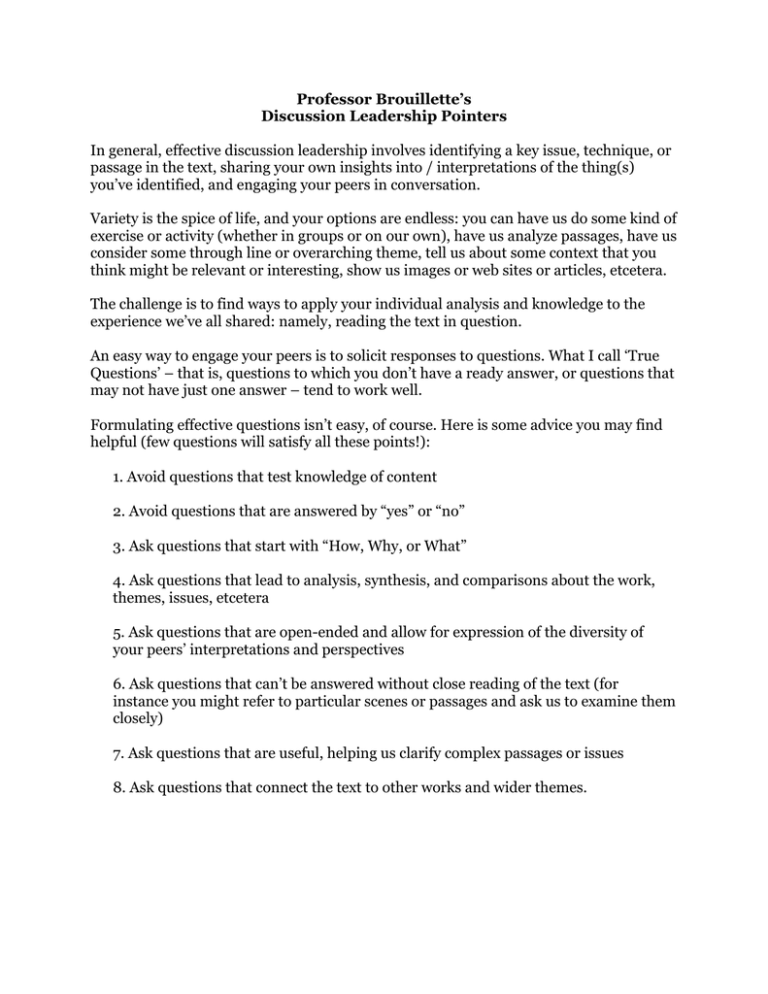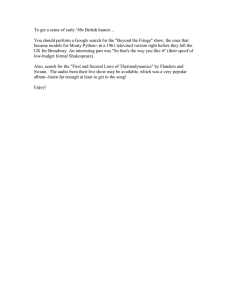Professor Brouillette’s Discussion Leadership Pointers
advertisement

Professor Brouillette’s Discussion Leadership Pointers In general, effective discussion leadership involves identifying a key issue, technique, or passage in the text, sharing your own insights into / interpretations of the thing(s) you’ve identified, and engaging your peers in conversation. Variety is the spice of life, and your options are endless: you can have us do some kind of exercise or activity (whether in groups or on our own), have us analyze passages, have us consider some through line or overarching theme, tell us about some context that you think might be relevant or interesting, show us images or web sites or articles, etcetera. The challenge is to find ways to apply your individual analysis and knowledge to the experience we’ve all shared: namely, reading the text in question. An easy way to engage your peers is to solicit responses to questions. What I call ‘True Questions’ – that is, questions to which you don’t have a ready answer, or questions that may not have just one answer – tend to work well. Formulating effective questions isn’t easy, of course. Here is some advice you may find helpful (few questions will satisfy all these points!): 1. Avoid questions that test knowledge of content 2. Avoid questions that are answered by “yes” or “no” 3. Ask questions that start with “How, Why, or What” 4. Ask questions that lead to analysis, synthesis, and comparisons about the work, themes, issues, etcetera 5. Ask questions that are open-ended and allow for expression of the diversity of your peers’ interpretations and perspectives 6. Ask questions that can’t be answered without close reading of the text (for instance you might refer to particular scenes or passages and ask us to examine them closely) 7. Ask questions that are useful, helping us clarify complex passages or issues 8. Ask questions that connect the text to other works and wider themes. MIT OpenCourseWare http://ocw.mit.edu 21L.701 Literary Interpretation: Literature and Urban Experience Spring 2009 For information about citing these materials or our Terms of Use, visit: http://ocw.mit.edu/terms.

